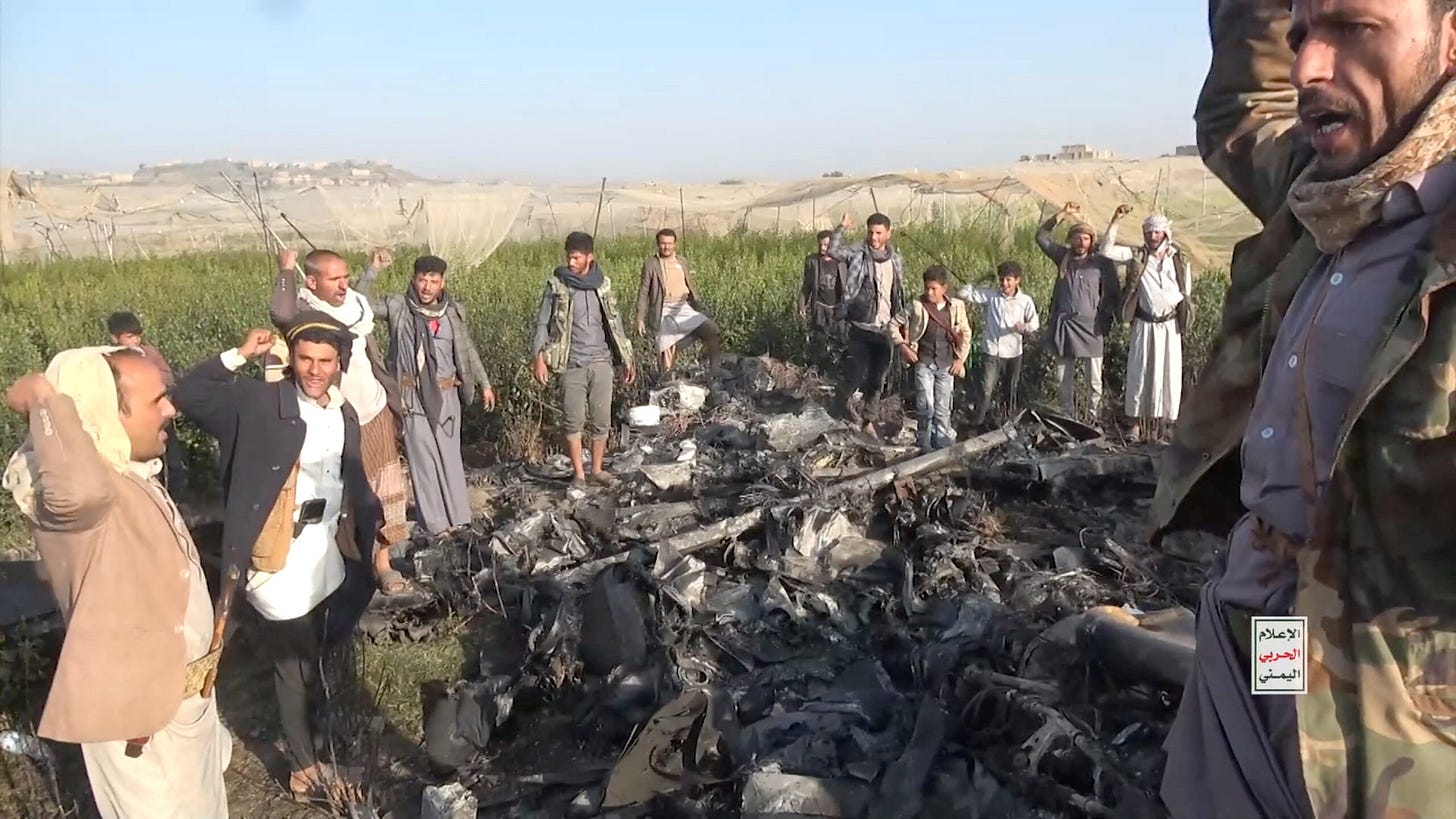Saudi Set to Acquire Previously Downed MQ-9 Drones
The Kingdom continues to wager billions on ventures critics deem infeasible and of little value.
The United States is advancing a potential $100 billion defense package for Saudi Arabia, including up to 200 MQ-9B SkyGuardian and SeaGuardian drones, a capability Riyadh has sought since February. The development coincides with a renewed focus on defence and conflict in Washington, underscored by the recent renaming of the Department of Defense to the Department of War. However, the MQ-9's vulnerabilities persist: Houthi forces downed multiple U.S.-operated Reapers in 2024 using Iranian-supplied 358 missiles, raising questions about the drones' effectiveness in contested airspace and Riyadh's path to advanced defense partnerships.
Defence Partner Dreams
Saudi Arabia's interest in 200 MQ-9B drones reflects its drive for strategic autonomy following the 2024 Iran-Israel conflict, which exposed gaps in regional security. The May arms package integrates these drones with upgrades to F-15 fighters, Patriot and THAAD missile defenses, and C-130J transports, enhancing intelligence, surveillance, and reconnaissance against the Houthis. For Riyadh, the acquisition bolsters monitoring of threats in Yemen and the Gulf, while politically reaffirming U.S.-Saudi ties revitalized under Trump.
Yet, this reliance on U.S. technology may conflict with Vision 2030's diversification goals, including local manufacturing and partnerships with China and Turkey for drones like the Wing Loong II and Akinci. Technology transfers and joint exercises could foster interoperability but risk long-term dependency, limiting Riyadh's flexibility in a multipolar world where U.S. export controls threaten autonomy.
Houthi and Red Sea Threats
The downing of a US MQ-9 Reaper by Houthi forces in 2024 exposes critical weaknesses in these multimillion-dollar assets, undermining Saudi plans for drone-heavy defenses. Armed with Iranian-supplied missiles, such as the 358, the Houthis have reportedly claimed over 20 Reaper losses since 2023, challenging US aerial dominance in the region.
Ongoing attacks in the Red Sea, including the sinking of vessels such as the Magic Seas in July, have disrupted approximately $1 trillion in annual trade. Ships rerouted via the Cape of Good Hope incur additional fuel costs of around $1 million per journey and delays of 10–14 days, driving up freight and insurance rates. Despite Washington’s hawkish measures (including airstrikes that killed 53 Houthi fighters in March) these actions have failed to deter further attacks.
For Saudi Arabia, these developments highlight the obsolescence risks associated with its investments. From Vision 2030 megaprojects to multi-billion-dollar arms deals, the Kingdom continues to commit vast sums to ventures that critics contend may be overambitious, financially precarious, or of limited practical utility.



